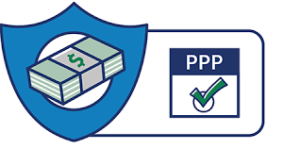A Senate Committee voted today to reduce the amount of tax that Virginia will impose on the Paycheck Protection Plan (PPP) grants that saved Virginia jobs, but not by much. It remains clear many legislators think employers owe Virginia tax on those dollars.
Declining to tax the entire amount is being packaged as a gracious concession on the state’s part.
“Tax it all” is still the opinion of Governor Ralph Northam, who has been pushing to impose state income tax on the full PPP amounts if those receipts are in effect loans which were forgiven. Arguments that this is not a tax on those grants is shameless sophistry. I will waste no more words on disputing nonsense.
The Senate Finance and Appropriations Committee amended the Governor’s bill today to allow the affected businesses to deduct $50,000 of the expenses (mainly payroll) used to qualify for the forgiveness of the PPP funds. That was Congress’s purpose for the money – keep Americans working and businesses spending during a flash recession caused by the COVID-19 pandemic.
The amended bill applies only for tax year 2020, but would allow the deduction for all employers, whether organized as corporations or taxed as individuals.
The vote to report the amended bill was 10 to 4 with one abstention. Three Republicans and Senate Majority Leader Richard Saslaw voted no. Republican Senator Emmett Hanger voted aye. The original bill had an emergency clause to go into effect immediately upon approval, and those nays would normally have been sufficient to kill the bill. Emergency measures need 80% support.
But the state’s desire for the hundreds of millions of dollars it will reap by taxing PPP is so strong, the bill was amended to remove that emergency clause. Northam would rather create massive disruption in the tax filing process than have to cut his record state budget, already fattened by its own direct federal COVID grants.
The issue on PPP taxation is buried in the annual bill (usually non-controversial) to update Virginia’s conformity to federal tax law. Failure to pass the bill without the emergency clause means all of the changes coming down from Congress, many of benefit to individuals, cannot be reflected on Virginia returns due in May.
In an earlier meeting of the committee, Northam’s Secretary of Finance Aubrey Layne had discussed setting a $100,000 threshold for deductions of the PPP related expenses, in effect taxing all but $100,000 of the PPP money. That would have removed the problem for about 80% of the 108,000 Virginia employers involved. The average 2020 PPP loan was $107,000. Many exceeded $1 million.
The reason for moving that back to $50,000 was nothing but a refusal to part with revenue already reflected in the state budget, the same motivation for taxing these transactions in the first place. They will not be taxed at the federal level. They will not be taxed in several other states, which are agreeing to conform to the Congressional decision to exempt them.
Unfortunately, the assumption that this is a valid and fair tax has been adopted by the one general newspaper providing any coverage of this issue. Several stories in the Richmond Times-Dispatch have stated that exempting PPP from tax “costs” the state. Provide similar treatment to emergency grants the state offered under a Rebuild VA program “and the state would lose up to $24 million.” (Emphasis added.)
The opinion of Virginia’s senior U.S. Senator, Mark Warner, was sought. He’s a business guy, and he supported tax-free status at the federal level. But he took the same “thank us for not taxing you” stance and told the Times-Dispatch, “by some estimates it could cost the federal government $120 billion.” Somebody at the federal level actually estimated how much tax it could have collected on its own grants?
If Virginia wants a real windfall, it should force everybody who received an individual COVID relief check or deposit to add that to their taxable income. Philosophically, there is no difference. Those funds might not even have been spent on deductible costs, unlike the business funds.
The Senate bill needs to go to the full Senate and then on to the House, where a similar bill has been “passed by for the day” for more than a week. It is clear the legislators are hearing from the companies, large and small, who are waking up to the reality the state wants a 6% cut of their PPP funds (if taxed as individuals, 5.75%.) This debate could follow the bill all the way to the Governor’s desk, so the pressure should continue.
“I think it is obvious we are going to have to amend the Governor’s proposal,” Senate Finance Chair Janet Howell of Fairfax said earlier this week, “even though some of us wish we didn’t need to.” This amendment may yet be amended again.



